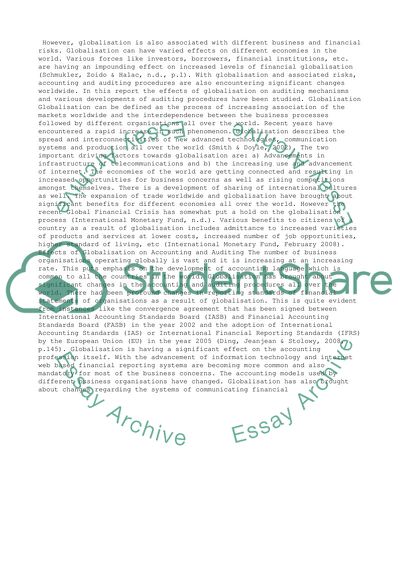Cite this document
(“Auditing Essay Example | Topics and Well Written Essays - 1750 words”, n.d.)
Retrieved from https://studentshare.org/management/1397552-auditing
Retrieved from https://studentshare.org/management/1397552-auditing
(Auditing Essay Example | Topics and Well Written Essays - 1750 Words)
https://studentshare.org/management/1397552-auditing.
https://studentshare.org/management/1397552-auditing.
“Auditing Essay Example | Topics and Well Written Essays - 1750 Words”, n.d. https://studentshare.org/management/1397552-auditing.


